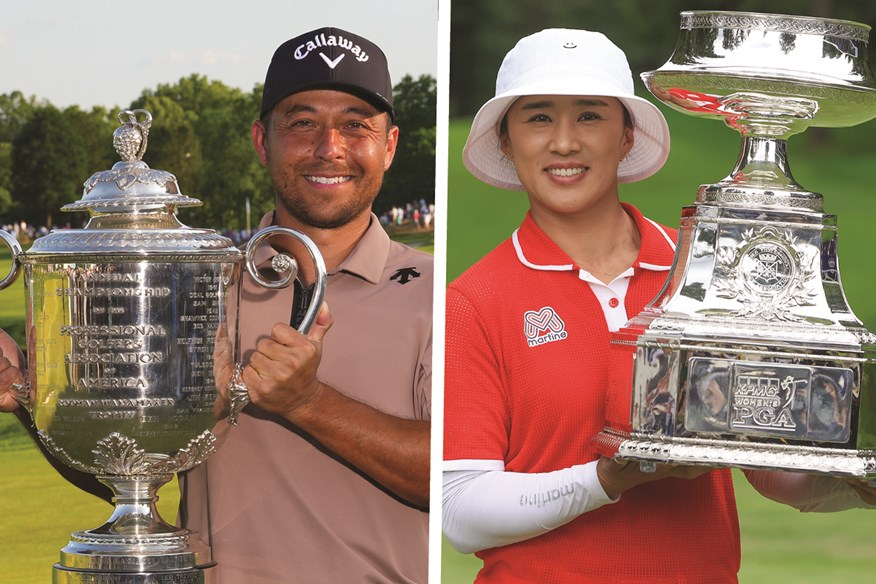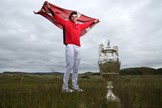I’ve never been more convinced that one of golf’s Majors must become a matchplay event
Last updated:
What did I learn while working at the R&A’s Amateur Championship? Professional golf needs more matchplay events… And those events need to be Majors.
I had the pleasure of covering the prestigious Amateur Championship at Ballyliffin Golf Club’s spectacular Glashedy Links a few weeks ago. It got me thinking – why doesn’t professional golf have more matchplay events? They’re so captivating for the players and viewers.
Barring coming home with a nasty dose of COVID-19 (yep, it’s still a thing), the week on the beautiful northwest tip of Ireland was so refreshing. Glashedy is one of the most spectacular links courses I’ve ever seen and the perfect backdrop for an event of such magnitude, which not only sees the winner take the coveted title but gain spots in The Open and the US Open, and, by tradition and invitation, a place at The Masters.
A mammoth 288 players teed it up at the start of the week, with two rounds of strokeplay used to whittle the field down to 64 in readiness for the match play drama. Come Sunday, and with eight rounds under his belt, Denmark’s Jacob Skov Olesen was the last man standing, beating England’s Dominic Clemons 4&3 in one of the most entertaining spectacles I’ve witnessed. Scandinavian golf has produced another incredibly talented player who I expect to follow fellow winners like Sergio Garcia, Matteo Manassero, Jose Maria Olazabal, in going on to do great things.
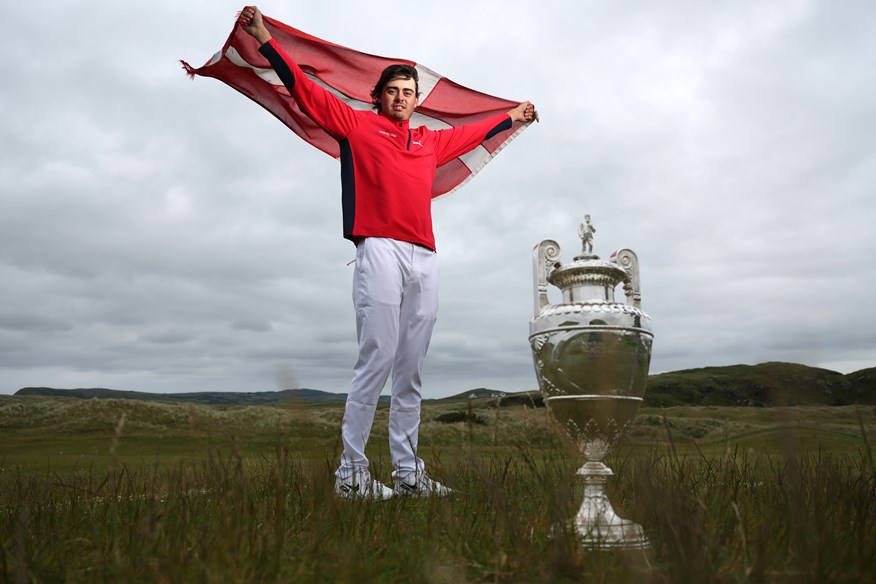
I’m lucky enough to cover at least two amateur events each year for the R&A – the Amateur Championship and the Latin American Amateur Championship, which is a 72-hole strokeplay event played in January. At the start of the year, I was in Panama to see Mexico’s Santiago De La Fuente fire a final round 64 to win the coveted title at Santa María Golf Club. It was a fantastic occasion but there’s no doubt in my mind that the Amateur Championship pips it from a viewing perspective because of the format. By mixing strokeplay and match play, the Amateur tests every aspect of players’ games, not least their mental strength and strategic approach.
- MORE FROM IONA
- Five lessons from my day with Butch
- Nelly Korda can be golf’s Caitlin Clark
- Golf has to make itself more accessible
- I’d love to see the trolls take on the women pros
Matchplay is commonplace in the amateur game, but it is becoming less so in the pro ranks. A matchplay tournament had been part of the PGA Tour schedule since 1999 when the World Golf Championships were born, but the WGC concept appears to have seen its final days. While that doesn’t mean a match-play tournament won’t happen again, there has been an absence in 2024. The LPGA still has the T-Mobile Match Play presented by MGM Rewards, Nelly Korda triumphing over Leona Maguire in the most recent final of a tournament that stood out for the right reasons.
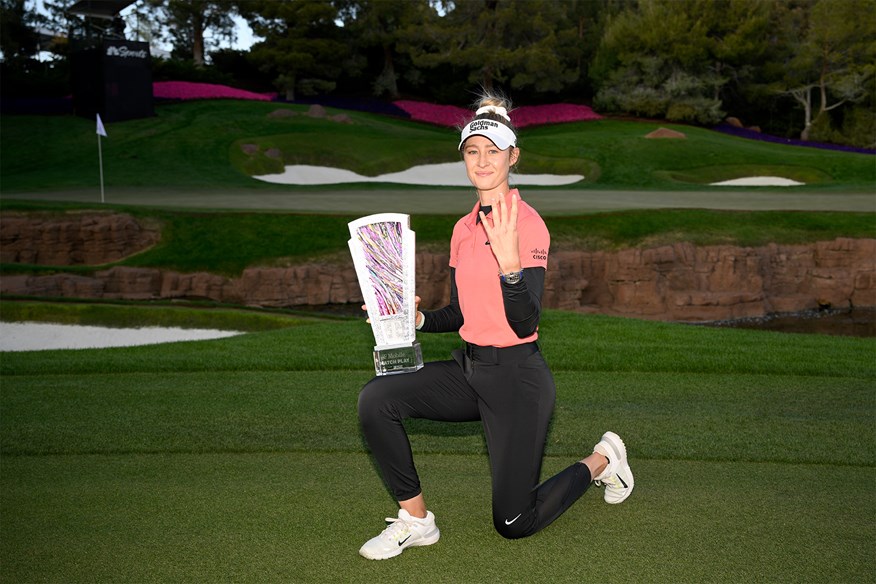
If we look back at the origins of the game, the US and British Amateur Championships both used match play format and were once considered Majors along with the US Open and Open Championship. But by 1958 the Majors were as they are today; the PGA Championship being turned from a match play event into another strokeplay tournament. We don’t just count down the days to the Ryder Cup and Solheim Cup because of the team format, but because of the head-to-head match play format. The Olympics faced criticism for just being another standard 72-hole event and we’re expecting big changes to that format in time for Los Angeles 2028. Now is the time for professional golf to make a change and turn both the men’s and women’s PGA Championships into matchplay events.
The PGA Championship has struggled to keep pace with its brothers and find a true identity – most golf fans will rank it fourth out of the men’s Majors and I suspect many women’s golf fans would put the KPMG Women’s PGA bottom of the pile, too. They both look eerily similar to many other PGA and LPGA Tour events. The only true difference is the inclusion of the club pros, but their role is typically ceremonial.
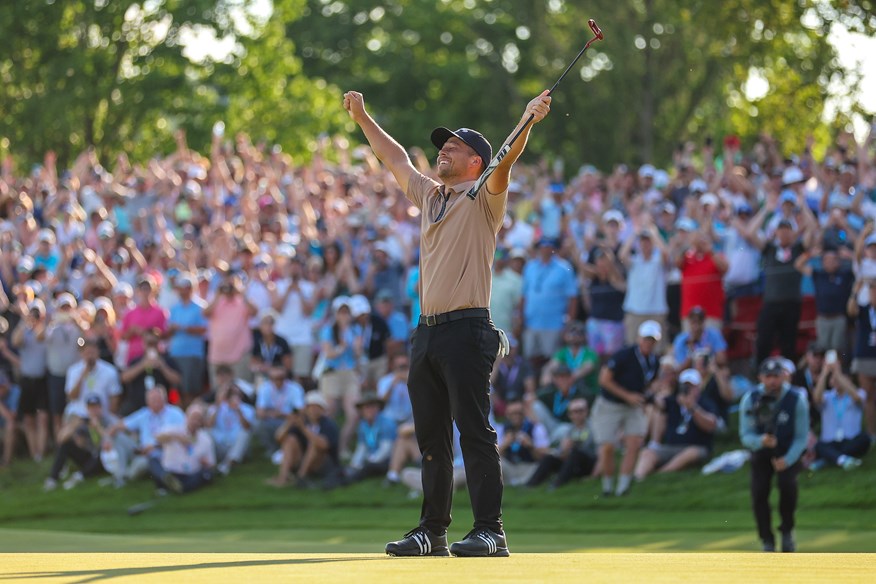
By changing to match play they could form an identity and keep professional golf connected to the very roots of the game. Matchplay is very entertaining to watch, and I’d even argue it’s the purest form of golf. Only the very shot at hand matters at any stage of play. It is the old cliché of ‘one shot at a time’ but put under a microscope. The PGA Championship used to be a grind to win back when it was a matchplay event. You would regularly have to play more than 200 holes in a week to accomplish it. There was a badge of honor that came with it, something I was reminded of at the Amateur Championship. No one can deny that the winner is fully deserving.
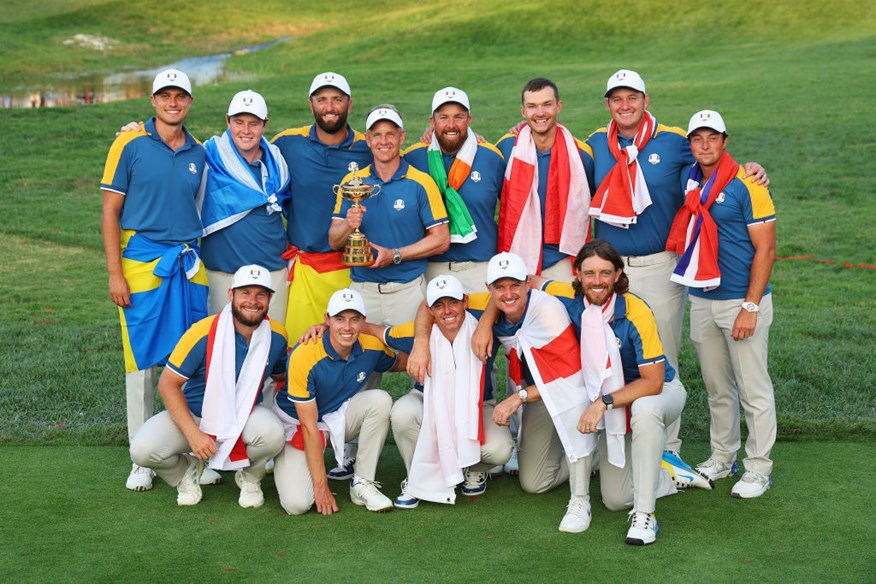
Of course, with matchplay, there is less golf on the course for spectators to watch as the tournament reaches its latter stages, but if we look at the Ryder Cup and Solheim Cup there’s a maximum of four matches out at any one time over the first two days and yet the crowds and television audience are vast. If anything, it would improve the atmosphere and excitement and put even more pressure on the pair in the final. That would inevitably lead to drama. And ultimately, who doesn’t want that?
- MORE FROM IONA
- Ryder Cup must never bow to pressure to pay players
- We have to punish slow play… it’s inexcusable
- I want to play in the AIG Women’s Open at St Andrews
- I would love to see the LET and LPGA merge
SUBSCRIBE TO TODAY’S GOLFER: Print and Digital access, discounts and rewards!
